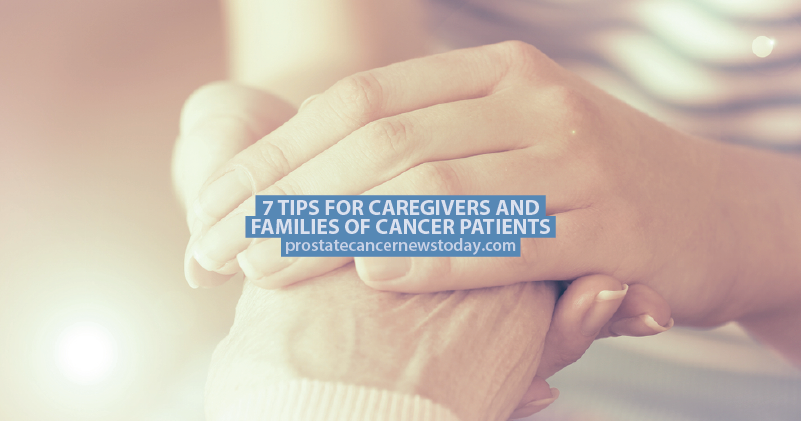The news of a loved one’s cancer diagnosis is devasting for the whole family and if you are to become a caregiver, will change your life just as much as the patient’s. Being a caregiver is a difficult, emotionally draining and tiring task, and can at times even feel like a thankless job but there are ways that you can manage your new role as a caregiver while still looking after yourself. With help from cancer.net, we’ve come up with some suggestions to help make life as a caregiver easier.
Remember you’re part of a team
You are not the sole provider of care for your loved one, you are part of a team of doctors, nurses, and other healthcare professionals. Use them as often as you need them, telephone or email them for advice when you need it, use the services they provide. Try to extend your team and make use of any other local resources available to you. If you can’t afford professional services, find out if there are any volunteer services in your area who could come and help you.
Be organized
Keep a file of all important documents you may need as your loved one’s caregiver, including medical records, medication notes, appointment schedules, insurance information, and any legal documents you may need to take care of. Decide if you need to become a health care proxy.
Be proactive
Educate yourself as much as you can about the cancer your loved one has. Keep up to date with the latest news in research, treatment, medications and therapies so that you can play a proactive role in treatment.
Speak to your loved one regularly about treatment so you know exactly what their wishes are. Take notes of any new symptoms or side effects the patient may be suffering from so you can speak to the doctor about them.
Accept limitations
Accept the limitations of your loved one. Fatigue and side effects from treatments such as radiotherapy and chemotherapy will take a lot out of them and they may not want to do much while recovering. Accept that the patient may experience mood swings, feel angry and upset, or suffer from depression and you may find yourself in the line of fire on occasion.
Also, accept your own limitations, don’t push yourself and get help when you can.
Debunk 10 of the most common myths about prostate cancer.
Try to keep some normalcy
Try to continue doing some of the things you used to do together before your loved one became ill. Even if this is just watching your favorite TV shows or a sports match. When your loved one is feeling OK try to get out of the house, visit friends, go to the cinema or for a meal, anything that will take both your minds off their illness for a while.
Get support
Ask friends and family to help out. Your loved one may not want to be cared for directly by anyone else, but friends and family can provide vital support for you by running errands, cooking a casserole, babysitting children, providing transportation etc.
Look for local support groups for caregivers or join an online forum or Facebook group. People going through the same experiences as you can offer invaluable advice and emotional support.
Look after yourself
To be a good caregiver, you need to look after yourself. Make sure you take breaks, eat well, get plenty of rest, and spend time doing things away from your loved one. Look after your emotional health too, many caregivers can suffer from depression or anxiety. If you feel depressed, speak to your doctor as soon as possible so you can get treatment. Consider counseling if you need someone outside of your circle to talk to.
Discover six things you should say to someone with prostate cancer.
Prostate Cancer News Today is strictly a news and information website about the disease. It does not provide medical advice, diagnosis or treatment. This content is not intended to be a substitute for professional medical advice, diagnosis, or treatment. Always seek the advice of your physician or another qualified health provider with any questions you may have regarding a medical condition. Never disregard professional medical advice or delay in seeking it because of something you have read on this website.


I appreciate you talking about getting support from friends and family. I recently found out my aunt found a lump and is going in to get a biopsy. Thank you for the tips on what families should do if their loved one is diagnosed with cance